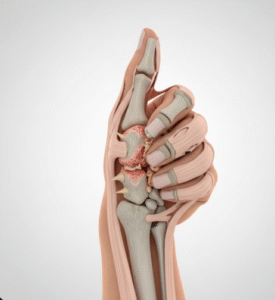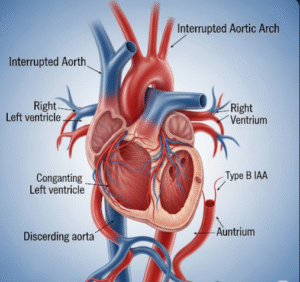Overview
Rabies is a viral zoonotic disease that affects the central nervous system, leading to fatal encephalitis if untreated. It is primarily transmitted through the bite of an infected animal. Rabies remains a critical public health concern worldwide but is preventable with timely intervention.
What Is Rabies?
Rabies is caused by the rabies virus, a member of the Lyssavirus genus. After exposure, the virus travels through peripheral nerves to the brain, causing inflammation and neurological symptoms. Without prompt treatment, rabies is almost universally fatal.
Symptoms
- Initial: Fever, headache, malaise, and discomfort or tingling at the bite site
- Progression: Anxiety, agitation, confusion, hallucinations
- Hydrophobia (fear of water due to painful swallowing)
- Excessive salivation
- Muscle spasms, especially in the throat and respiratory muscles
- Paralysis and coma leading to death
Causes
- Virus transmitted mainly through bites or scratches of infected animals (commonly dogs, bats, raccoons)
- Exposure to saliva of infected animals via open wounds or mucous membranes
Risk Factors
- Living or traveling in areas with uncontrolled rabies in animals
- Occupational exposure (veterinarians, animal handlers)
- Contact with wild or stray animals
- Lack of timely post-exposure prophylaxis after an animal bite
Complications
- Fatal encephalitis if untreated
- Respiratory failure and death within days of symptom onset
Prevention
- Vaccination of domestic animals and pets
- Avoiding contact with wild or stray animals
- Immediate wound cleansing after animal bites
- Post-exposure prophylaxis (PEP) including rabies vaccine and immunoglobulin administration
Treatment Options in Korea
Korea offers advanced prevention and treatment for rabies:
- Post-Exposure Prophylaxis (PEP): Immediate and thorough wound cleaning followed by rabies vaccination and, if indicated, rabies immunoglobulin.
- Pre-Exposure Vaccination: For high-risk individuals such as veterinarians or travelers to endemic areas.
- Surveillance and Control: Rigorous monitoring and vaccination programs for animals to prevent outbreaks.
- Public Awareness Programs: Education on avoiding animal bites and seeking immediate medical care.
- Supportive Care: Intensive care management for rare symptomatic cases.
Korea’s healthcare system ensures rapid access to vaccines and expert care to prevent the deadly progression of rabies.













